As the country marks National Disaster Resilience Month this July, the story of Rockwell Enterprice, Inc.—a Legazpi City-based company strengthened through a pivotal partnership with the Department of Science and Technology (DOST)—offers a powerful example of how innovation and collaboration can save lives.
Established in 1976 by Alexis Rellama, with the support of his wife Zenaida Rellama, Rockwell Enterprise Inc. began as a modest manufacturer of fire extinguishers in a region regularly battered by typhoons, volcanic eruptions, floods, and the threat of tsunamis. Recognizing the urgent need for locally available safety equipment, Rellama founded Rockwell with a mission: to help preserve lives and protect property through accessible safety tools and systems.
“Rockwell was a manufacturer of fire extinguisher noong time na hindi pa educated ang probinsya natin ng safety and security and mahirap ibenta noong panahon kasi di pa nila alam ang kahalagahan nito ,” says Zendy Rellama-Jarque, daughter of founder Alexis Rellama and now part of the second generation helping steer the company, “May sarili kaming brand ng fire extinguisher which is guardwell,”.
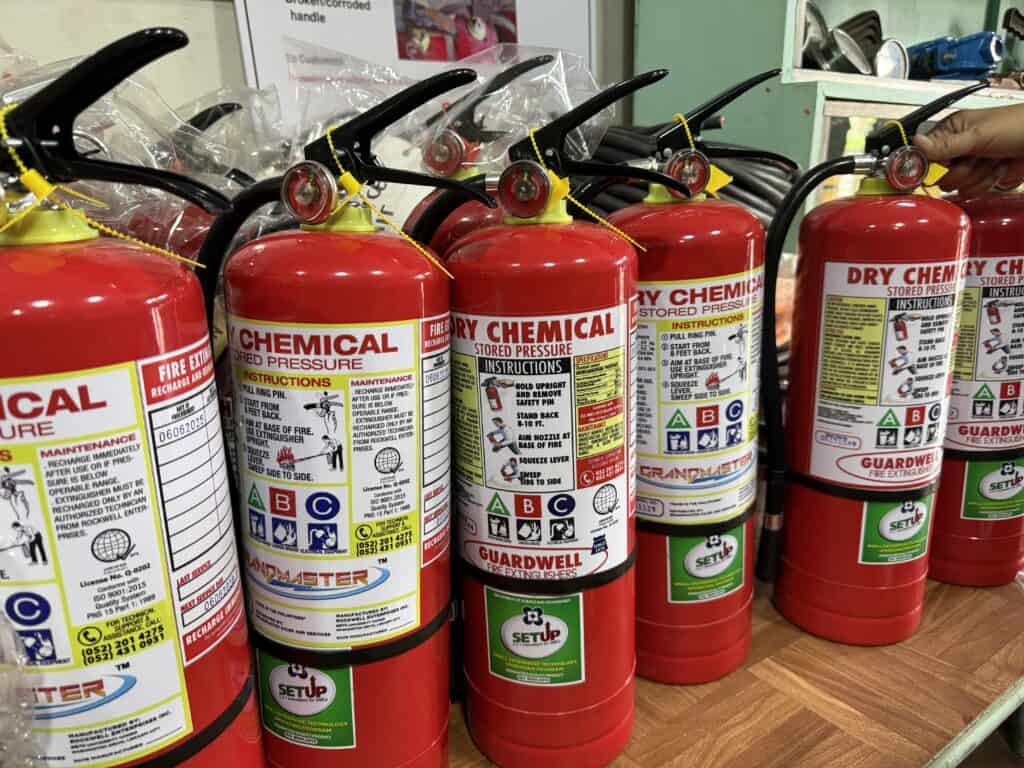
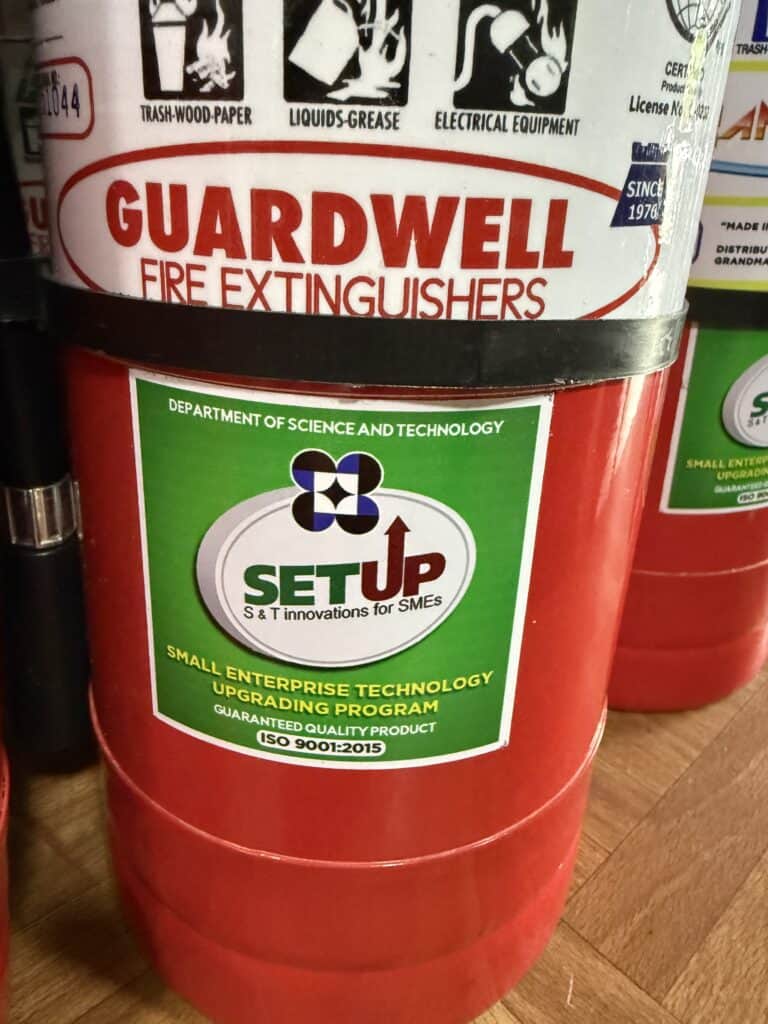
At a time when fire safety equipment was largely unavailable in the Bicol Region, Rockwell became the first of its kind—earning a reputation for quality and reliability. Over the next five decades, the company would grow into a trusted name in fire safety, personal protective equipment (PPE), and industrial solutions, all while retaining its strong community roots.
But it was a critical partnership with DOST that would elevate Rockwell’s capacity to meet growing demands and adapt to emerging challenges. Zendy recalls that in the early 2010s, Rockwell’s production remained largely manual, limiting its output to just 10 finished products per day. A DOST employee, seeing both the company’s potential and its limitations, recommended that it explore the agency’s innovation support programs.
In 2015, Rockwell applied for and received assistance through DOST’s innovation initiatives. “Mabilis ang productivity namin because of the equipment na na-acquire namin through DOST na inimport pa namin sa Italy,” recalls Zendy. This leap boosted daily output tenfold, from 10 to 100 products per day, while maintaining Rockwell’s rigorous quality assurance standards, including hydro testing, nitrogen filling, and drying processes. More than just an operational upgrade, the move helped the company fulfill its broader mission of strengthening community safety and reducing disaster risk.
This collaboration laid the groundwork for Rockwell’s most impactful projects to date. In response to the growing need for early warning systems in disaster-prone coastal areas—especially in Bicol—Rockwell worked with DOST and the Philippine Institute of Volcanology and Seismology (PHIVOLCS) to fabricate and distribute Tsunami Early Warning Devices.
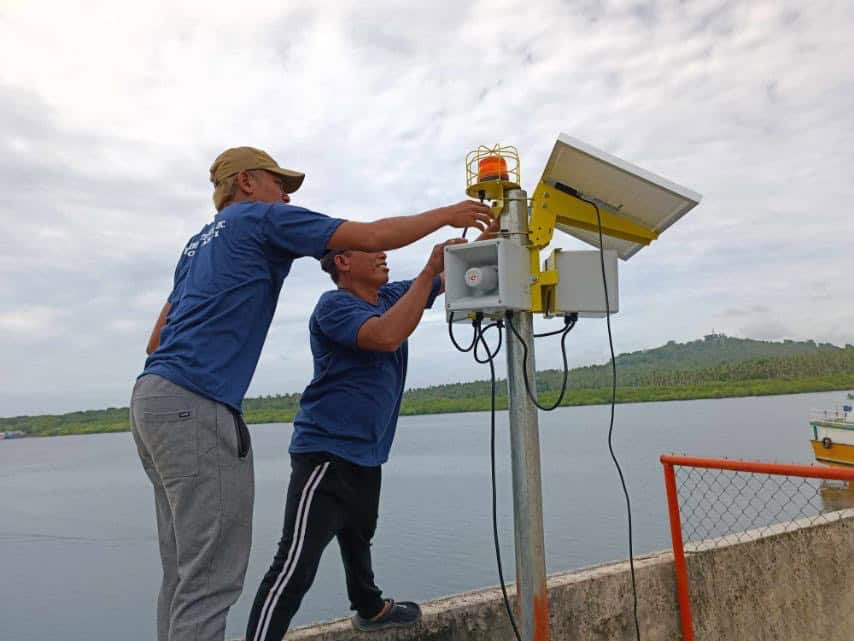
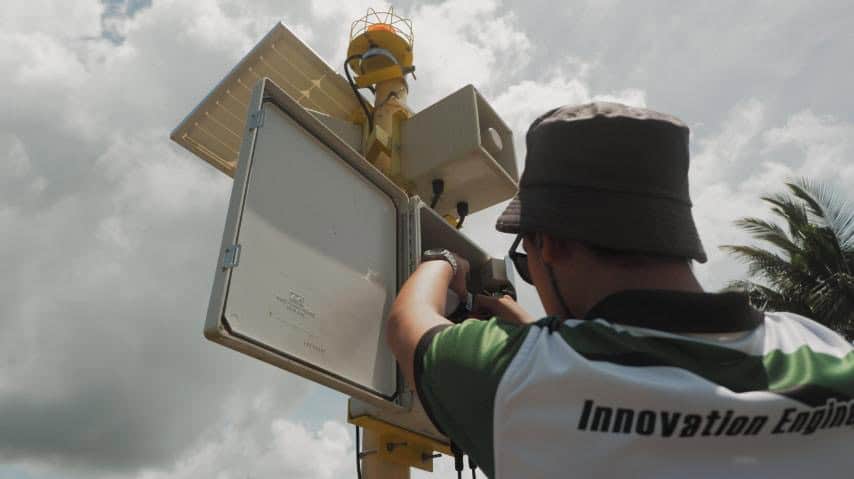
Initially developed as prototypes by DOST, these life-saving systems were granted to Rockwell for licensed fabrication following rigorous evaluations. Once a local government unit (LGU) coordinates with PHIVOLCS and a location is deemed suitable, Rockwell manufactures and supplies the device. Each unit costs around Php 450,000, with total project costs—including installation and site construction—reaching up to Php 500,000, depending on the location of the installion. If all components are available, fabrication takes about two weeks; if materials are delayed, the process can extend to 90 days.
To date, Legazpi City leads the Bicol Region in installations, with 15 units positioned along its coastline. This partnership between a regional enterprise and national science agencies exemplifies how local innovation and government support can work hand in hand to build safer, more resilient communities.
“We have also in Mindanao, BARMM area na na-appreciate nila ang device kasi kailangan din ng community nila”, Zendy adds.
Zendy says that the success of this project also opened the door for further collaboration. Rockwell teamed up with the Industrial Technology Development Institute (ITDI), another DOST arm, to develop and commercialize the Mobile Disinfection Water Filtration System—branded as “Safe Water.” This portable system converts surface water into potable water for use in remote or emergency settings. Priced at approximately Php 600,000 per trailer-equipped unit, these systems have already been deployed in Camarines Norte and Sorsogon, with plans to expand to areas like Zamboanga.
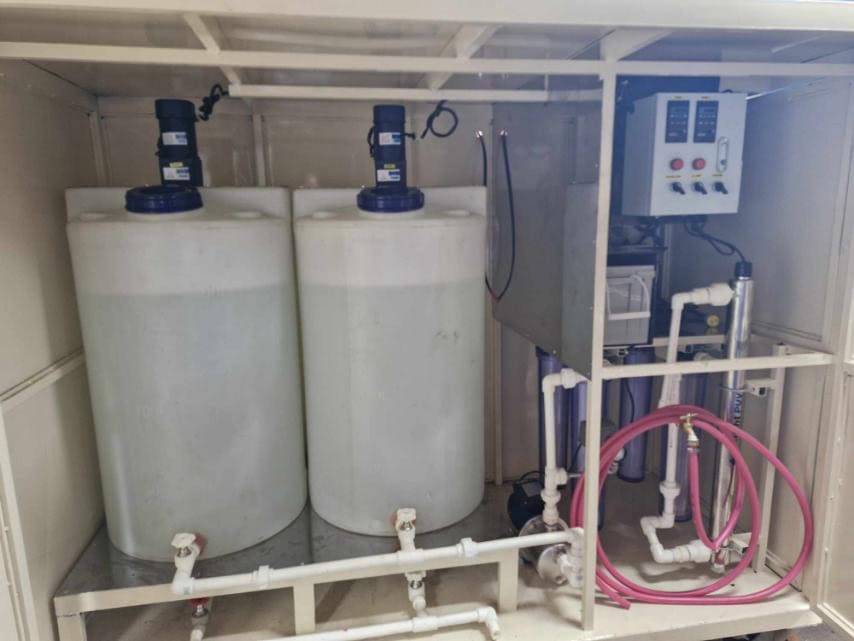
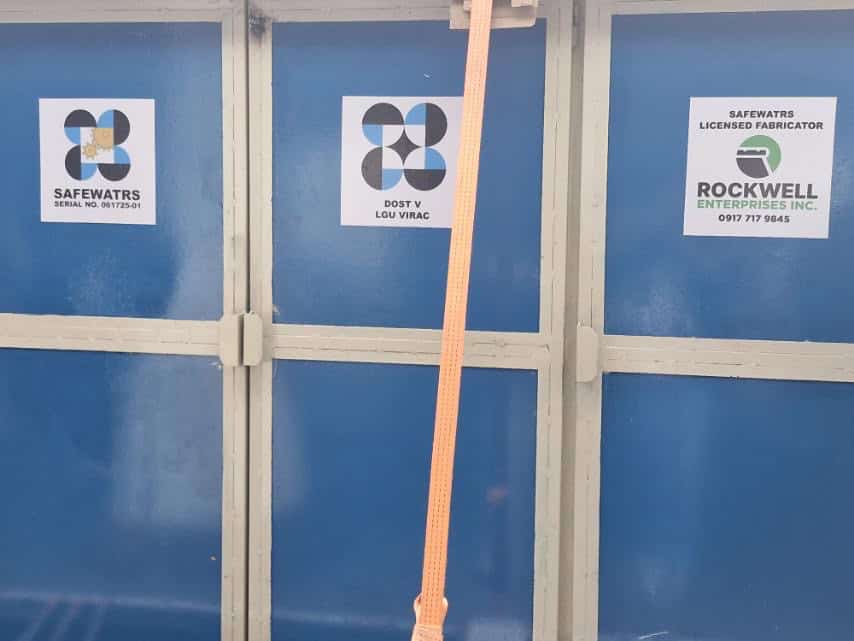
Now approaching its 50th year, Rockwell Industry stands not only as a business success story but as a model of what public-private partnership can achieve in disaster risk reduction. Certified by the Industrial Technology Development Institute (ITDI), Bureau of Product Standards (BPI), and ISO, the company continues to innovate while staying true to its Bicolano roots.
From handcrafting fire extinguishers in the 1970s to leading safety and disaster technology efforts across the country, Rockwell’s journey is proof that resilience is built—not just by weathering storms, but by preparing for them together.| Story by Nico Jaymalin, Jam Mazo & Neil Mondragon
